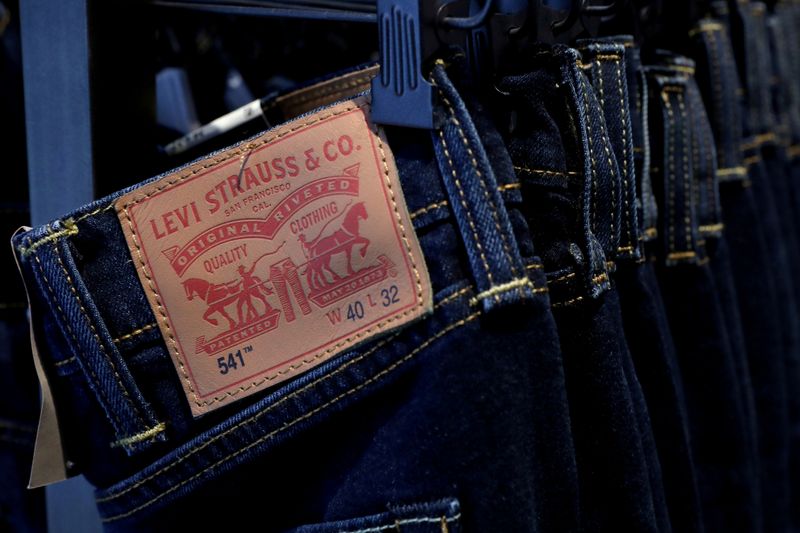Gold prices slip after rallying on Powell rate cut talk
Levi Strauss (NYSE:LEVI) & Co’s shares tumbled to a 52-week low this week, with the stock price hitting $15.5, reflecting broader market headwinds and specific challenges facing the apparel industry. The iconic denim brand has seen its shares struggle over the past year, with a total return of -14.48%. Despite the challenges, the company maintains impressive gross profit margins of 60% and offers a dividend yield of 3.29%. Investors are closely monitoring the company’s performance as it navigates through a period of economic uncertainty and shifting consumer trends, which have impacted its bottom line and stock valuation. For deeper insights into LEVI’s financial health and growth prospects, check out the comprehensive Pro Research Report available on InvestingPro. The current price level serves as a critical juncture for Levi’s, as stakeholders consider the company’s strategies for recovery and growth in a competitive landscape. The company operates with moderate debt levels and maintains sufficient cash flows to cover interest payments, suggesting financial stability despite current market pressures.
In other recent news, Levi Strauss & Co. reported impressive revenue growth for the fourth quarter of fiscal year 2024, with net revenues reaching $6.4 billion. This performance surpassed market expectations, marked by significant increases in both direct-to-consumer and wholesale channels. In response to these results, Guggenheim raised its price target for Levi Strauss to $22, maintaining a Buy rating, reflecting confidence in the company’s strategic direction. Similarly, TD Cowen adjusted its price target to $22, retaining a Buy rating despite noting challenges such as a higher projected tax rate and foreign exchange headwinds. Stifel maintained a Buy rating with a $25 price target, citing strong organic revenue growth and an evolving business model.
Meanwhile, Telsey Advisory Group lowered its price target to $23, highlighting Levi’s robust business and the impact of foreign exchange headwinds on future guidance. The company also announced a significant reorganization of its executive team to enhance its focus on omnichannel retailing. This includes expanded roles for key leaders and the appointment of Bernard Bedon as Chief Human Resources Officer, effective March 3. The leadership changes aim to streamline operations and drive sustainable growth, aligning with Levi Strauss’s commitment to a consumer-centric approach.
This article was generated with the support of AI and reviewed by an editor. For more information see our T&C.
